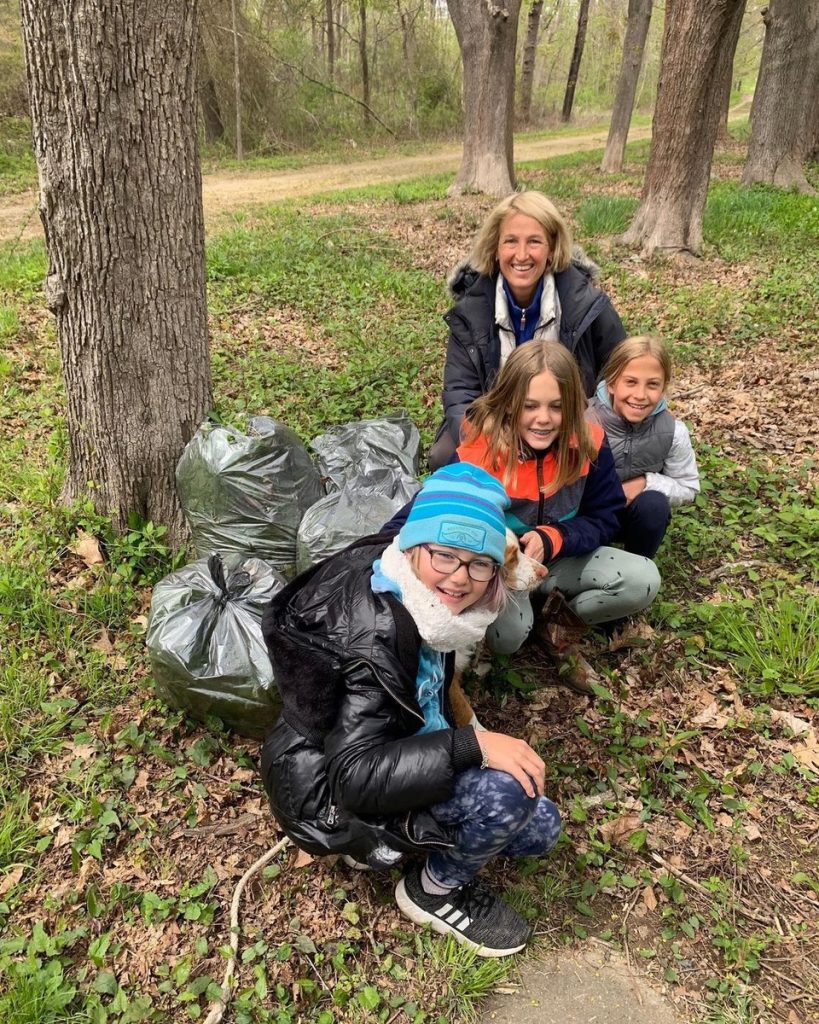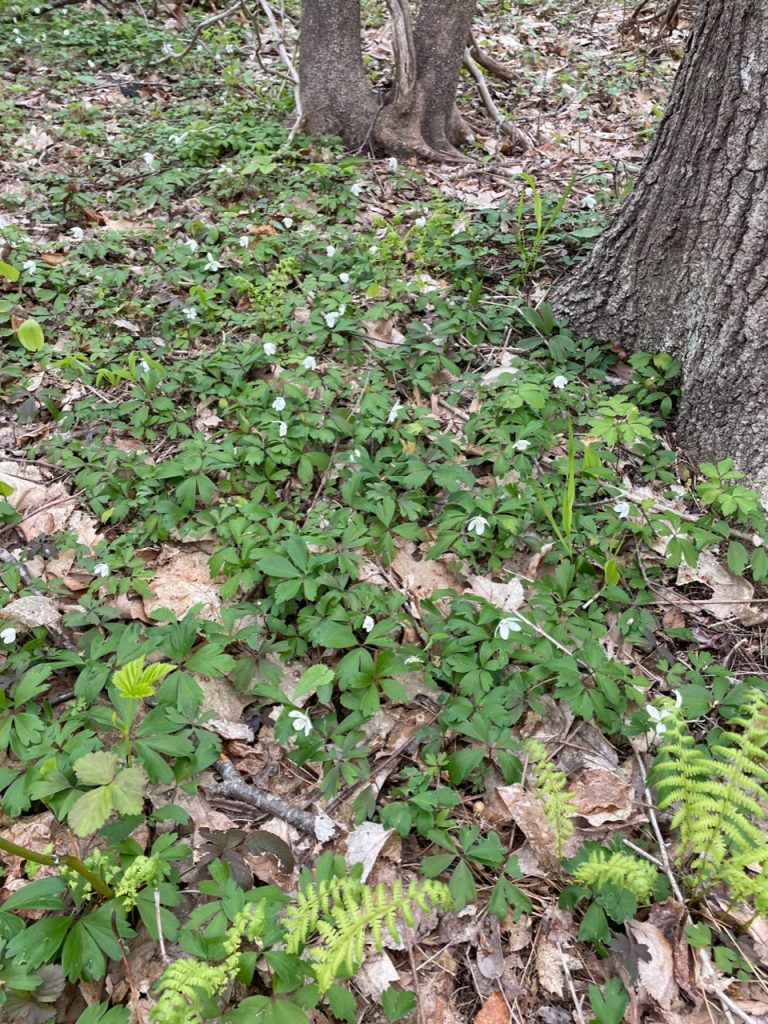
April 3, 2023 Submitted by Wild Cohasset
Perhaps you’ve seen them, crouched by the side of the road in Cohasset, Scituate or Norwell, weeding amidst the poison ivy. If you’ve wondered what they’re doing, wonder no more: they are the volunteers of Wild Cohasset, a local non-profit dedicating to preserving the South Shore’s native plants by combating invasive plant species which threaten biodiversity. Now, the group—and its intrepid weeders–has set its sights on Hingham.
Wild Cohasset was formed specifically to combat non-native plants and to bring back the native plants and wildflowers that used to grow in profusion on the South Shore but are now threatened by the (overly) hardy newcomers. Native plants are vital to wildlife such as hummingbirds, songbirds, bumblebees and other native pollinators, and absolutely essential to Monarch Butterflies, which were added to the endangered species list this past July.
Enemy number one on the group’s list? A “noxious” weed called Garlic Mustard, an invasive plant that is found in profusion in Hingham. “I know that it definitely isn’t on most people’s radar screens,” says Wild Cohasset’s Founder Lisey Good. “But invasive plants like Garlic Mustard pose a huge threat to our wild spaces, and to the birds and butterflies that depend on them. ” She added that over time, Garlic Mustard threatens entire forests due to its impact on soil chemistry which inhibits new tree seedlings from taking root.

“Our volunteers have made a huge impact in Cohasset and we’d love to duplicate that in Hingham, “ says Wild Cohasset President Barbara Wrenn. “In Wheelwright Park, for example, an area of native flowers—wood anemones—was being overtaken by Garlic Mustard. We removed it and continued to monitor. Now, the anemones have returned en masse. Not only does our work protect this beautiful wildflower, it supports native pollinators like tiny sweat bees that rely on this flower to survive in early spring. ”
Sadly, Garlic Mustard can be found everywhere in Hingham: in many yards, roadsides, and most ominously, in areas bordering town woods and conservation land. It spreads by the illicit dumping of lawn cuttings and weeds onto roadsides and wild spaces, and its seeds have most likely made their way into the mulch that many homeowners use on their own gardens.
Black Swallow Wort is another invasive plant taking root in Hingham. This plant spreads through the air, like dandelions, and poses a terrible threat to Monarch Butterflies in particular. It’s been spotted on Main Street in Hingham, with each plant capable of spreading seeds up to a mile in each direction.
The group is currently surveying the town for the most vulnerable areas and attempting to root out pockets of Garlic Mustard and Black Swallow Wort, or at a minimum to contain its spread. Wild Cohasset will make house calls free of charge to help Hingham homeowners identify invasive plants in their own neighborhoods. Hingham volunteers are actively sought to aid with weeding events; no experience is necessary. The organization is also accredited to give community service hours to teens and National Honor Society students for participating during events or on their own schedule.
To volunteer, or to request help with identifying Garlic Mustard or Black Swallow Wort on your property, please log on to www.WildCohasset.org.



